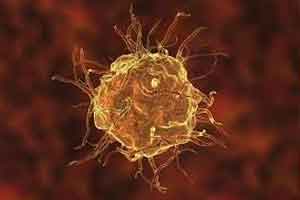- Home
- Editorial
- News
- Practice Guidelines
- Anesthesiology Guidelines
- Cancer Guidelines
- Cardiac Sciences Guidelines
- Critical Care Guidelines
- Dentistry Guidelines
- Dermatology Guidelines
- Diabetes and Endo Guidelines
- Diagnostics Guidelines
- ENT Guidelines
- Featured Practice Guidelines
- Gastroenterology Guidelines
- Geriatrics Guidelines
- Medicine Guidelines
- Nephrology Guidelines
- Neurosciences Guidelines
- Obs and Gynae Guidelines
- Ophthalmology Guidelines
- Orthopaedics Guidelines
- Paediatrics Guidelines
- Psychiatry Guidelines
- Pulmonology Guidelines
- Radiology Guidelines
- Surgery Guidelines
- Urology Guidelines
Spices can help prevent and fight colorectal cancer

Spices make our food tasty. Now we have another reason to enjoy them more often. A group of Indian scientists has found that cardamonin, a chemical found in cardamom and other edible plants such as ginger and peppercorn, is effective in preventing and controlling colorectal cancer in mice.
Researchers at the Rajiv Gandhi Centre for Biotechnology in Kerala and Manipal University in Karnataka conducted studies on a mouse induced with colorectal cancer using drugs as well as human cancer cell lines, and have found cardamonin to be effective.
The cardamom chemical was given as a protective agent before the development of cancer as a dietary intervention and also after the animals developed colorectal cancer. In both the situations, it was effective. Researchers then figured out the mechanism of action of this phytochemical and identified its role in altering the MicroRNAs or miRNAs in the cell. miRNAs are short stretches of genetic material (RNA) that do not code for a protein but have regulatory functions.
“Cardamonin modulates certain micro RNAs that collectively regulate the reactive oxygen production,” explained Dr Kuzhuvelil B. Harikumar, who led the research. Reactive oxygen when produced leads to cell death. Cardamonin increases their production, which results in the death of unwanted cancer cells.
“Along with further identifying the critical micro RNAs which regulate reactive oxygen-dependent genes, we are also interested in checking the synergy between the cardamonin and FDA approved chemotherapeutic drugs for a possible combination therapy. Exploring certain chemically synthesised analogs of cardamonin with increased cytotoxicity is one of our prime focuses,” Dr. Harikumar told India Science Wire.
Colorectal cancer is cancer of the colon or the rectum, and is currently the third most common cause of cancer in men and second most in women. Dietary and lifestyle habits are to be blamed for it.
The research team included Shirley James, Jayasekharan S. Aparna, Aswathy Mary Paul, Manendra Babu Lankadasari, Sabira Mohammed, Valsalakumari S. Binu, Thankayyan R. Santhoshkumar, Girijadevi Reshmi and Kuzhuvelil B. Harikumar. The findings have been published in journal Scientific Reports.
(India Science Wire)

Disclaimer: This site is primarily intended for healthcare professionals. Any content/information on this website does not replace the advice of medical and/or health professionals and should not be construed as medical/diagnostic advice/endorsement or prescription. Use of this site is subject to our terms of use, privacy policy, advertisement policy. © 2020 Minerva Medical Treatment Pvt Ltd